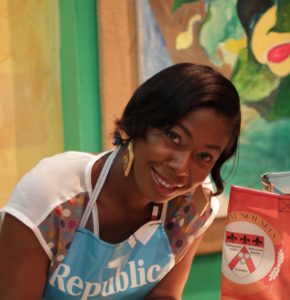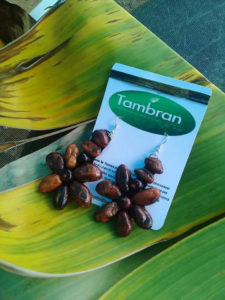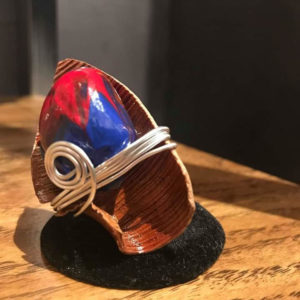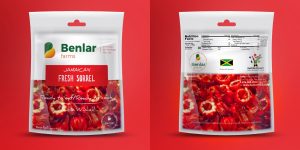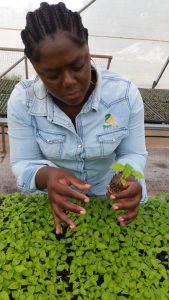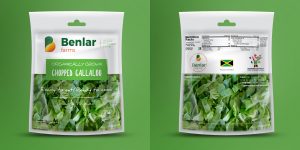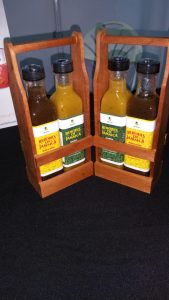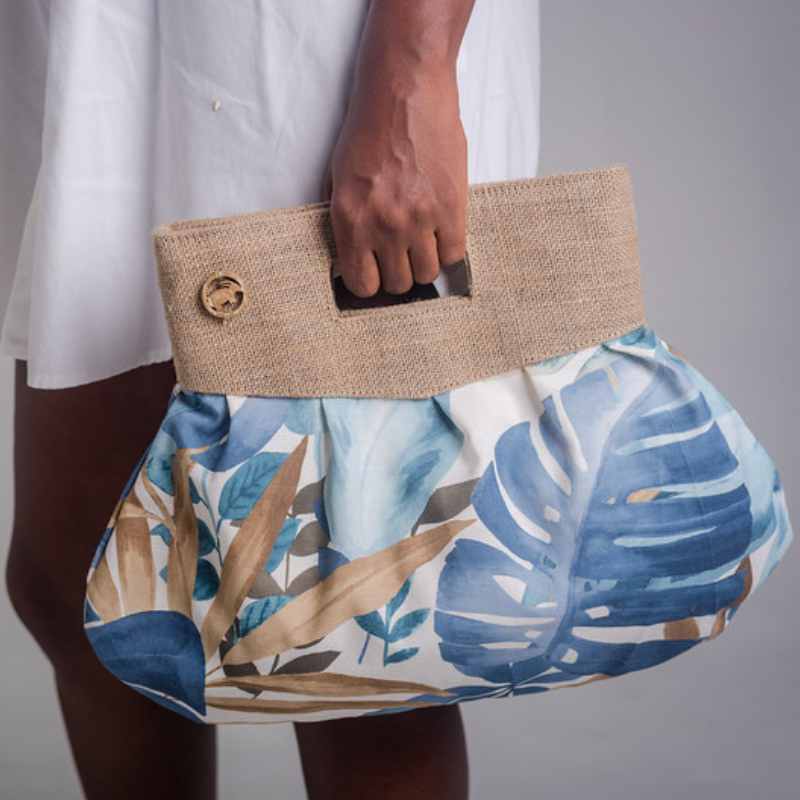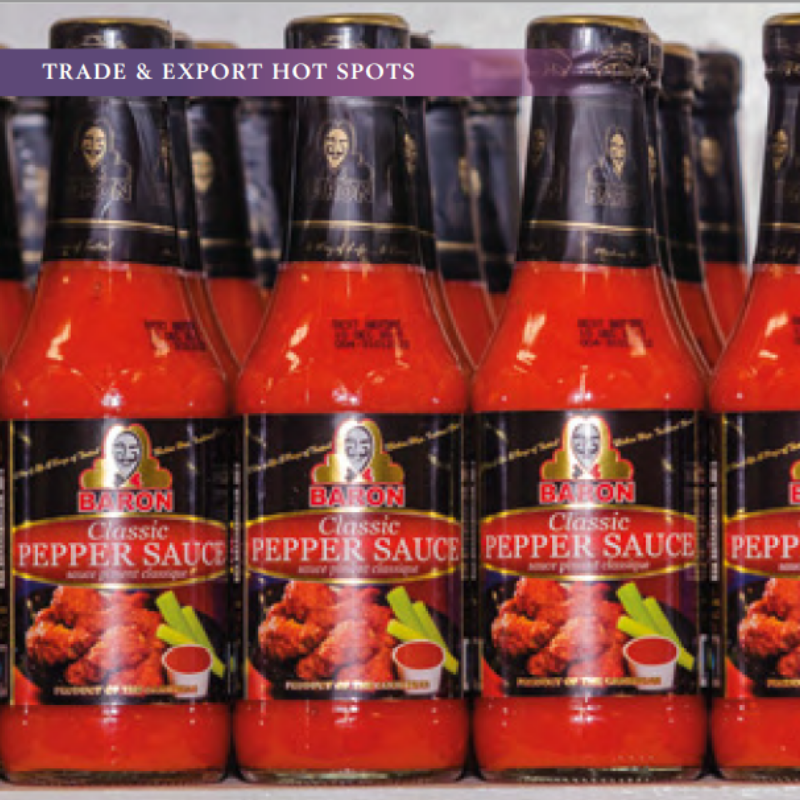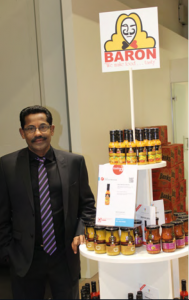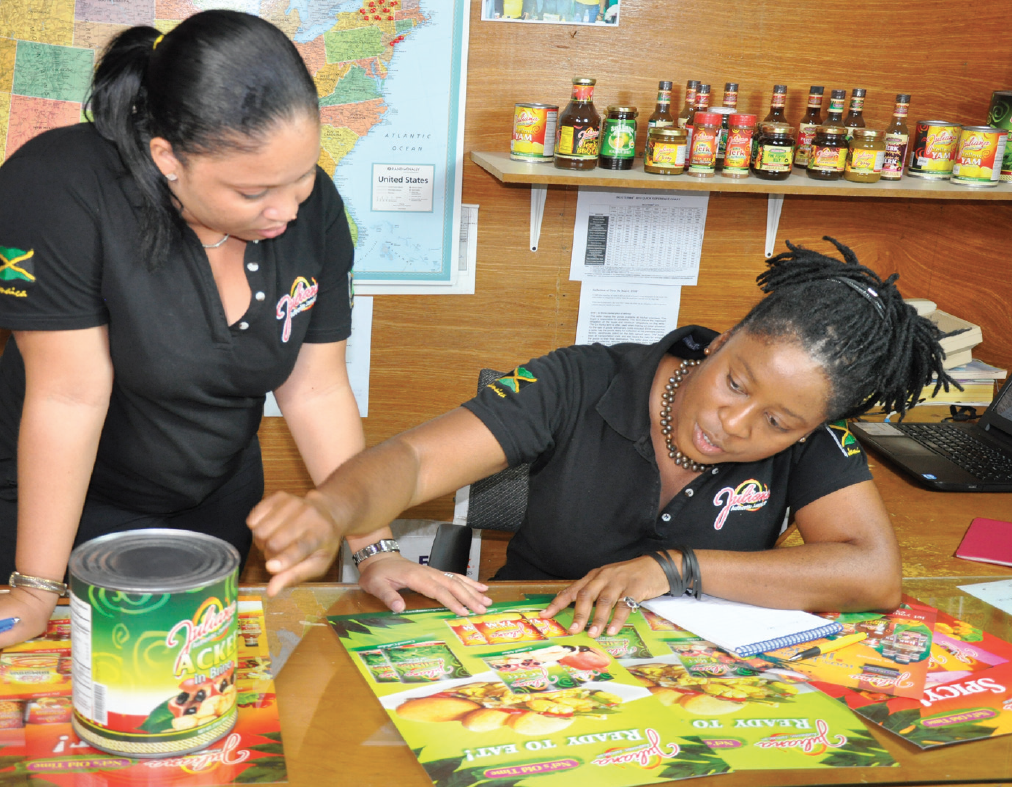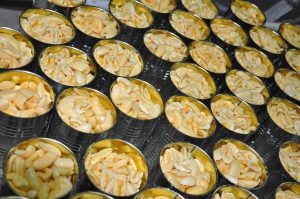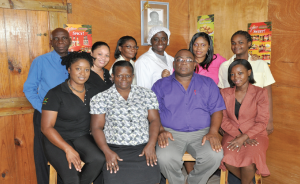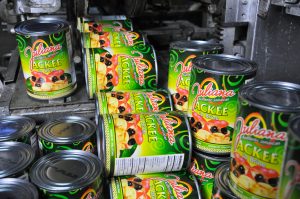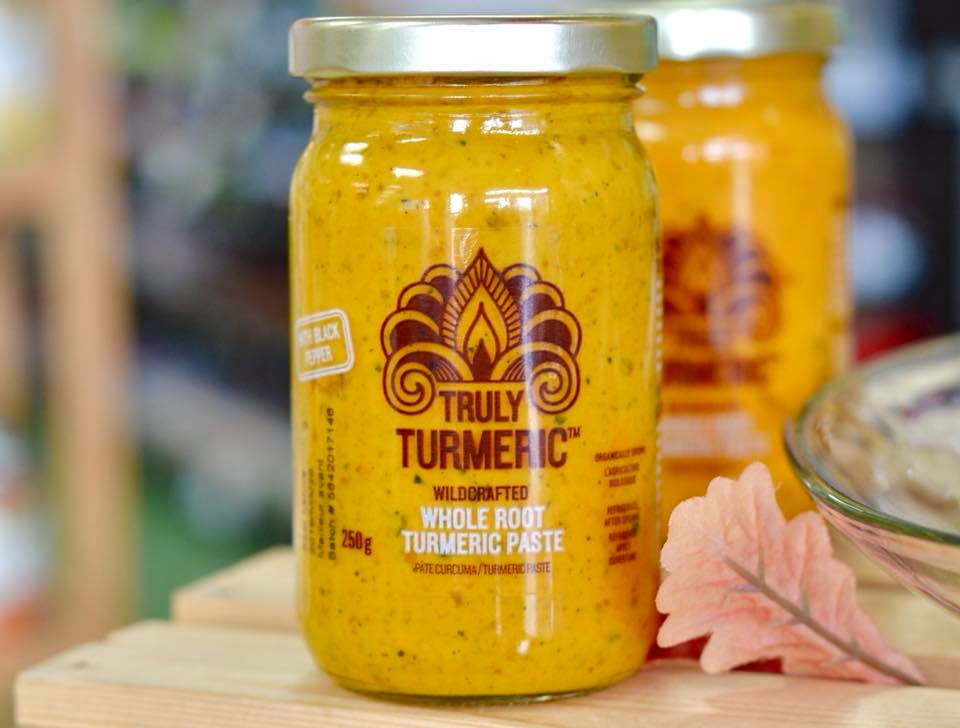Cuando Umeeda Switlo visitó Belice en 2014 por encargo de una ONG internacional, se enamoró inmediatamente del país centroamericano, de su gente y de una especia de raíz dorada y picante.
Era la cúrcuma más hermosa que había visto en mi vida, recordó. Era enorme y de un color realmente anaranjado.
Y cuando estrechó la mano de uno de los antiguos cultivadores de cúrcuma de la India, se sintió inspirada, decidida a ayudarle a él y a otros cultivadores a reconectar con su cultura.
La cúrcuma, principal componente del curry, se introdujo en Belice hace más de 200 años, cuando llegaron al país sirvientes contratados por la India.
Venerada por sus cualidades medicinales, la cúrcuma también está muy arraigada en la cultura de Umeeda. Nacida en Uganda e hija de una mujer renacentista, Umeeda recuerda que su madre, Lella (también conocida como Mamajee), corría con coches, dirigía su propio Montessori y cocinaba un excelente curry. Huyeron del país desgarrado por la guerra en la década de 1970, y llegaron a Canadá con nada más que una maleta y recuerdos.
Mamajee se unió a su hija Umeeda, y finalmente a su nieta Nareena, en la cocina, compartiendo historias de su hogar y enseñándoles recetas tradicionales. También utilizó estas sesiones epicúreas para inculcar un fuerte sentido de la responsabilidad social, haciendo que Umeeda y Nareena se detuvieran a pensar cada vez que les preguntaba qué harían para hacer del mundo un lugar mejor.
Encontraron la respuesta durante la visita de Udeema a Belice en 2014, donde una combinación perfecta de historia, tradición y madre naturaleza dio a luz a una empresa social galardonada que ayudaría a los agricultores a obtener ingresos adicionales, emplear a los jóvenes, mejorar la salud y producir productos de forma sostenible.
Su proyecto empresarial, Naledo Belize, combina el nombre de Nareena con el de Toledo, el distrito de Belice de donde procede la cúrcuma. La empresa compra la cúrcuma directamente a los agricultores locales y la utiliza para fabricar Truly Turmeric, la primera pasta de cúrcuma de raíz entera elaborada de forma silvestre.
Es sólo cúrcuma, dirán ustedes. Pero no se equivoquen, la misión de Naledo, su producto final y el elemento social utilizado para producirlo son transformadores. La empresa ha sido preseleccionada para un premio a la innovación de productos SIAL París 2018, que reconoce a quienes ayudan a dar forma a lo que comemos hoy, y mañana.
Los premios se celebrarán en París durante la mayor feria de innovación alimentaria del mundo, del 21 al 25 de octubre de 2018.
Poner en marcha el negocio
Entonces, ¿qué se necesita para crear una empresa innovadora, socialmente consciente, sostenible y premiada?
Hubo algunas cosas que tuve que superar, la primera fue el miedo a mí mismo, compartió Umeeda. También estaba creando un nuevo producto. Nadie en el mundo había hecho esto antes, así que no había ningún ejemplo que pudiera seguir. Y lo hacía en un país extranjero.
Umeeda también recordó sus anteriores aventuras empresariales. Ser tu propio jefe es un reto, dijo. Y no estaba muy segura de estar dispuesta a hacerlo de nuevo. Pero se sintió alentada por los jóvenes aspirantes a empresarios de Belice, así como por el interés y la pasión de su hija por la empresa social.
La idea de un equipo de madre e hija me conquistó, dijo Umeeda. Ella tiene habilidades que yo no tengo, y yo tengo habilidades que ella no tiene. Así que se sentía como un buen equipo.
Umeeda tiene un historial empresarial muy variado que va desde la propiedad y la gestión de una enorme guardería infantil hasta la dirección de músicos y la construcción de un local de Rock n Roll.
La madre y la hija también tienen experiencia en desarrollo internacional. Nareena posee una gran experiencia en el sector de las organizaciones sin ánimo de lucro, donde trabajó como directora de recaudación de fondos; pero Naledo es su primera aventura empresarial, y admite que iniciar un negocio ha supuesto una enorme curva de aprendizaje.
Recuerdo ir a las reuniones con los distribuidores y anotar todos los acrónimos. Me dijeron que cuál era su precio de venta al público? Y yo iba al baño con mi teléfono para buscar en Google qué es el SRP, decía. Intentaba constantemente equilibrar el hecho de querer ser honesto y decir que no estoy seguro de lo que significa, con el hecho de parecer demasiado ingenuo y perder la capacidad de negociación.
Los desafíos también abundan en el ámbito personal. Tal y como cuenta Nareena, su relación no sobrevivió a los rigores de la actividad empresarial.
Tenía una pareja, un novio con el que vivía, y no le gustaba lo que hacía. Él pensó que yo era una estúpida por hacer esto, compartió. Recuerdo que cuando imprimí mis primeras tarjetas de visita, me dijo que no podías llamarte director de operaciones. Ahora mismo eres el director de operaciones de nada. Ya no estamos juntos.
Pero a pesar de los numerosos obstáculos a los que se enfrentaron, Nareena y Umeeda no perdieron de vista el premio. Se mantuvieron centrados en su misión y dedicados a cumplir el deseo de Mamajee de vivir con un propósito, contribuyendo positivamente a la vida de los demás.
Naledo comenzó a desarrollar el producto en 2015. Para darse a conocer, decidieron prescindir de la vía del mercado agrícola y optaron por lanzarse en una feria del sector celebrada en mayo de 2016 en Vancouver (Canadá), en la que estarían presentes compradores minoristas, distribuidores e intermediarios. Su montaje era básico, sólo 50 tarros etiquetados y unas cuantas muestras. Pero la respuesta fue abrumadora. Naledo llamó la atención de un distribuidor nacional que creyó en su modelo de empresa social y les ayudó a pasar de cero tiendas en 2016 a 600 en todo Canadá, de costa a costa. La empresa también exporta ahora a las Bahamas, ya ha cerrado un acuerdo para Estados Unidos y se está preparando para exportar a Europa.
No se puede negar que fabrican un producto estelar, pero el éxito de Naledo también se debe en gran parte a su forma de hacer negocios. El espíritu empresarial de los jóvenes, la agricultura regenerativa y la sostenibilidad son los fundamentos de la empresa.
El lado humano de nuestro éxito es lo que más me enorgullece, el impacto que la producción de este producto ha tenido en los cultivadores con los que nos asociamos, la gente que puede ahorrar para la educación de sus hijos, renovar sus casas, ir de viaje, dijo Nareena. Cada vez hay más gente, sobre todo jóvenes, que se sienten orgullosos de decir que cultivan cúrcuma, en lugar de ver la agricultura como algo que hacen los pobres.
Con la excelencia viene el reconocimiento
Naledo Belize puede añadir su nominación a un premio SIAL París a una creciente lista de reconocimientos mundiales que incluye un premio a la innovación del Gobierno de Belice, una de las 10 principales empresas alimentarias de Canadá a tener en cuenta en 2018 y un puesto en la temporada 13 del exitoso programa de televisión Dragon’s Den.
En SIAL, decenas de miles de interesados en la industria de la alimentación y las bebidas tendrán la oportunidad de probar la pasta Simply Turmeric de Naledo, que se expondrá en el stand de la Agencia de Desarrollo de las Exportaciones del Caribe (Caribbean Export). La agencia regional de promoción del comercio y la inversión apoya a las empresas del CARIFORUM en su desarrollo para la exportación y presentará 12 empresas regionales en la exposición. Caribbean Cure, una empresa de té con sede en Trinidad que formará parte de la exposición Caribbean Export, también está nominada a la SIAL.
El hecho de que dos empresas regionales hayan entrado en la lista de finalistas del SIAL es un gran logro, y en opinión de Umeeda es un mérito de Caribbean Export.
Tener una organización que cree que la región del Caribe tiene algo que ofrecer al mundo es muy importante. Lo que proporcionan en términos de acceso a los conocimientos y a la financiación me dejó boquiabierto, dijo Umeeda. No puedo enfatizar lo suficiente el apoyo que supone.
Naledo Belize espera lanzarse en Europa en 2019. Tanto Umeeda como Nareena destacaron que esto es posible gracias a Caribbean Export.
Un consejo para los aspirantes a empresarios
El viaje de Naledo desde Belice, hasta Canadá, el Caribe, América y pronto Europa, ha sido duro y ha estado lleno de noches sin dormir. Pero eso es sencillamente el espíritu empresarial, compartió Umeeda. Ella y Nareena reflexionaron sobre las innumerables noches que han pasado despiertas a las 3:00 de la madrugada, preocupadas, solucionando problemas y contemplando los próximos movimientos, las numerosas veces que la voz de la duda les empujó a abandonar. Pero cuando esas dudas afloran, la pareja encuentra su voluntad de seguir adelante en una cifra, 350, el número de cultivadores de Belice con los que se han asociado.
Pienso en no fallarles, en el increíble equipo de jóvenes con el que trabajamos en nuestra fábrica de procesamiento, en hacer que mi abuela se sienta orgullosa y en todas las demás personas de mi vida que me han dado valor y me han demostrado que hay que ser resistente ante la adversidad, dijo Nareena. Así que tal vez duerma un poco más en esas mañanas en las que no me metí en la cama hasta después de las 3:00 AM, y seguiré trabajando.
Nareena también imploró a sus compañeros empresarios, y a los que están en camino de emprender, que se rodeen de mentes afines. El marketing y las redes sociales se centran en la perfección, pero debajo de todo ello hay un inmenso trabajo, dedicación y abnegación. Compartir estas luchas con compañeros que las entienden es vital.
Te hace sentir validada, dijo. Te das cuenta de que no soy sólo yo. Estoy bien.
Y haz oídos sordos a los detractores que te aconseja.
Si su crítica es sobre tu producto o tu servicio, tal vez debas escucharla, porque en esa negatividad puede haber alguna posibilidad de mejora. Pero si son negativos con respecto a tu pasión, a lo que eres y a lo que crees, diles que se vayan.
PARA SABER MÁS SOBRE NALEDO BELICE: Facebook – Naledo Belice; Instagram – @ truly.turmeric; y visitando su página web www.naledo.com.














